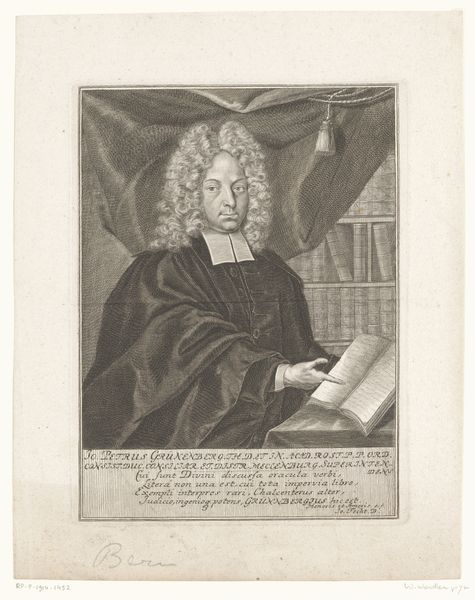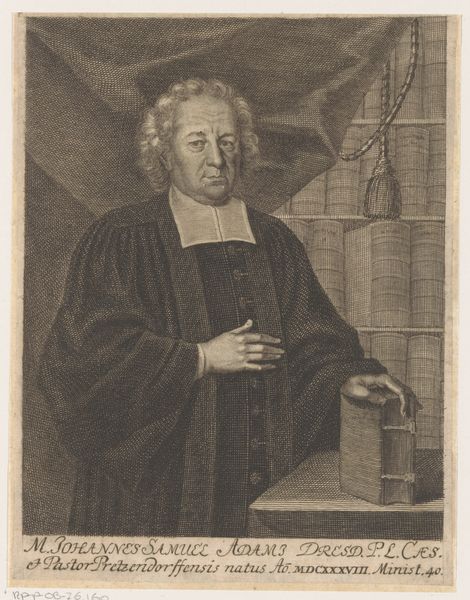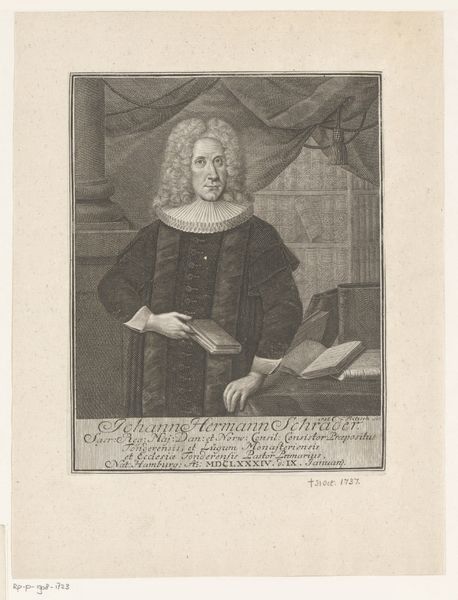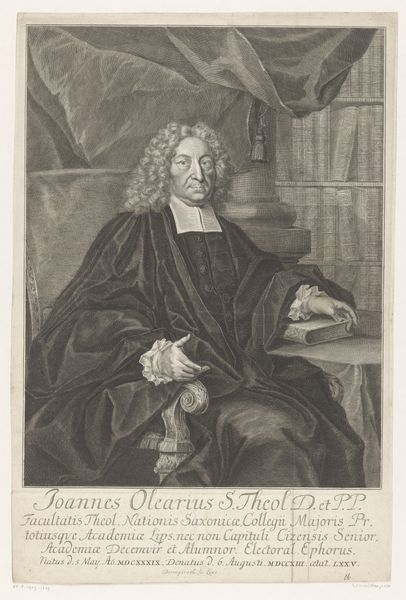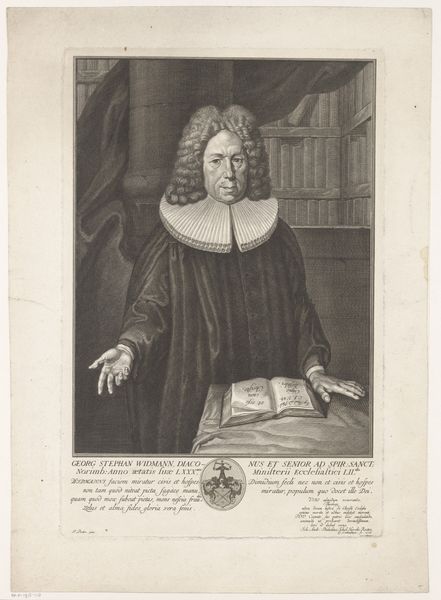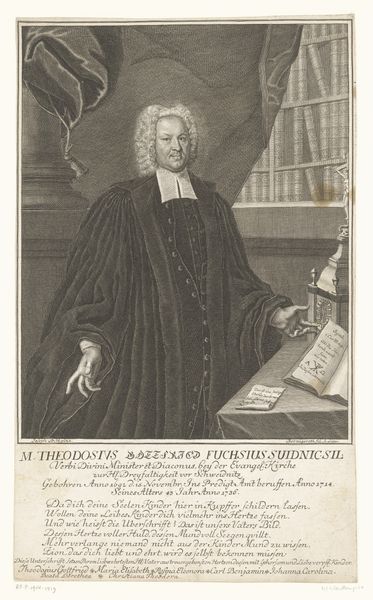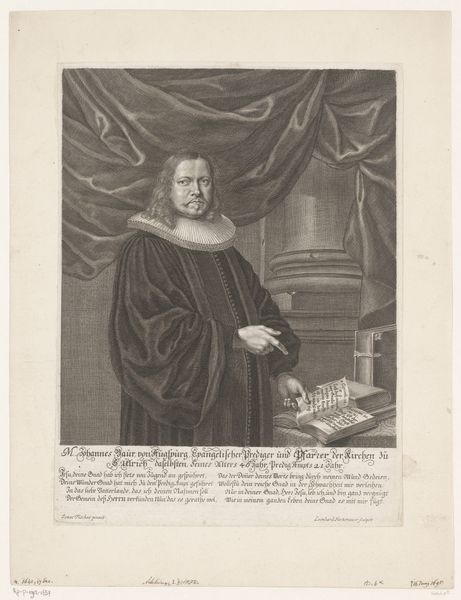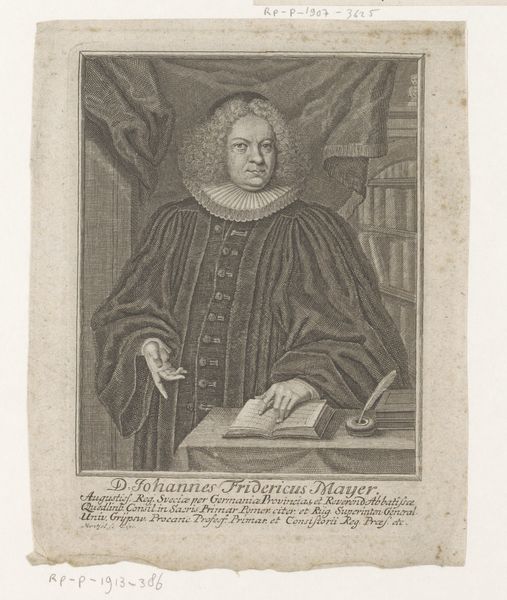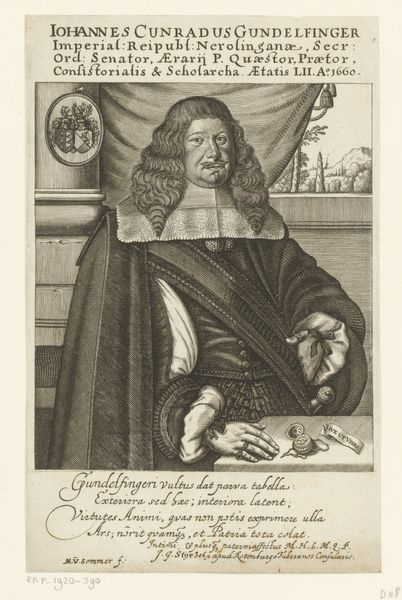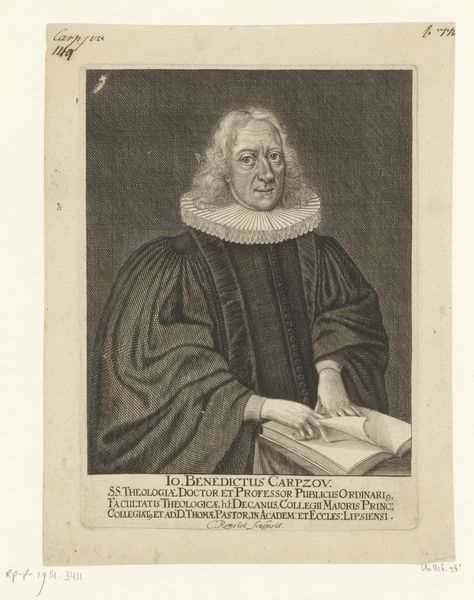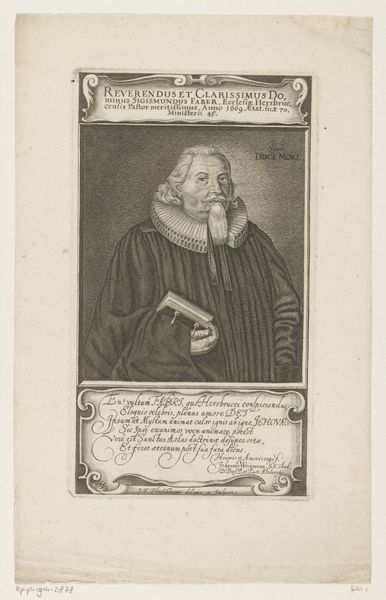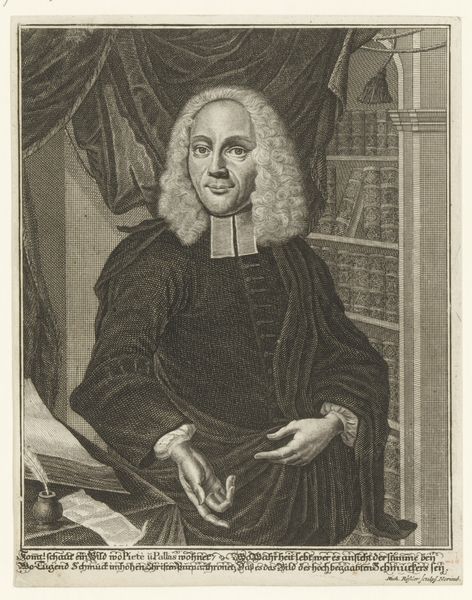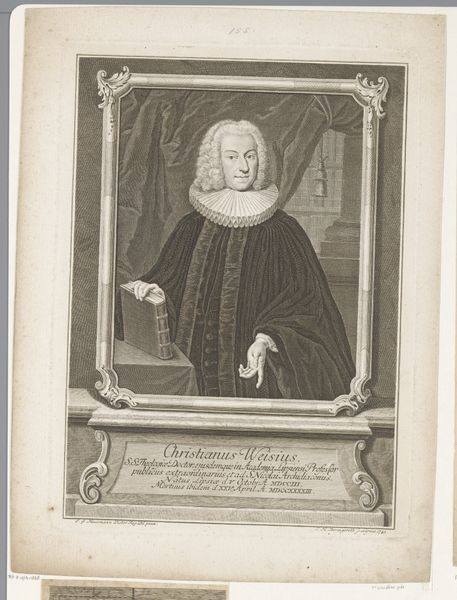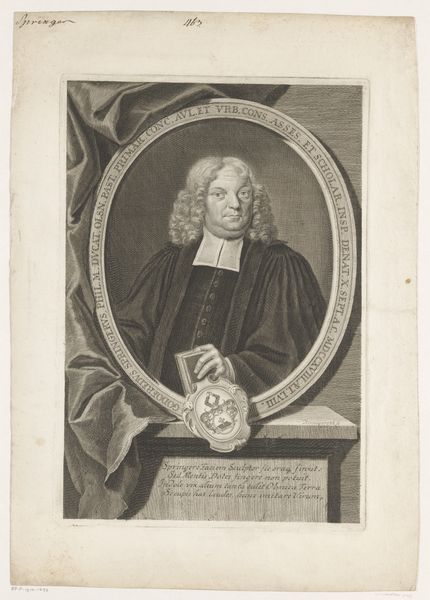
print, engraving
#
portrait
#
baroque
# print
#
old engraving style
#
history-painting
#
academic-art
#
engraving
Dimensions: height 312 mm, width 189 mm
Copyright: Rijks Museum: Open Domain
Editor: This is a print called "Portret van Philipp Ludwig Hanneken," created sometime between 1706 and 1733 by Martin Bernigeroth. It's a striking image. The detail is incredible for an engraving. What strikes you most about this piece? Curator: What grabs my attention is the deliberate layering of materials and how they represent Hanneken's world. We see the textures of his clothing, the paper of the book, and the architectural elements. How do these materials, and their representation through the printmaking process, construct his identity? Consider the labor involved in creating this image. The meticulous engraving process wasn't just about reproducing an image, it was a statement about skill, time, and value. Editor: So you're saying the materials used to create the portrait and the time spent on it elevated Hanneken's status? Curator: Precisely. And think about the intended audience. Prints like these were often commissioned or created for specific circles – academic or elite society perhaps. The material form, the engraving, became a vehicle for disseminating an image of authority and intellectual prowess. It’s interesting to see how Bernigeroth negotiates that relationship through his control of the medium. Does that change how you view the overall work? Editor: I hadn't considered the labor involved in the printing process. Now it feels like a crafted image of power, created as much by the engraver as the person depicted. I guess thinking about *how* something is made is just as important as what's shown. Curator: Exactly! By focusing on the materials and methods of production, we gain a deeper understanding of the artwork's cultural significance. Editor: I’ll never look at a portrait the same way.
Comments
No comments
Be the first to comment and join the conversation on the ultimate creative platform.
